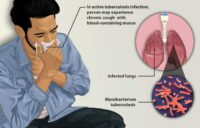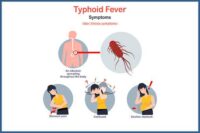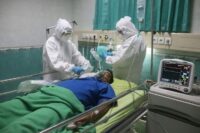Dengue
Dengue is a viral infection transmitted by Aedes mosquitoes, common in tropical regions. Symptoms include high fever, severe headache, joint and muscle pain, and skin rash. In some cases, it can progress to dengue hemorrhagic fever, which may cause bleeding, low platelet count, and shock. There is no specific antiviral treatment, but early diagnosis and supportive care help reduce complications. Our team closely monitors vital signs and lab parameters for timely intervention. Preventive measures focus on mosquito control and public awareness.
Malaria
Malaria is a mosquito-borne parasitic disease caused by Plasmodium species. It presents with cyclical fever, chills, sweating, fatigue, and body aches. If not treated promptly, it can lead to complications like anemia, cerebral malaria, or organ failure. Diagnosis is made through blood tests, including peripheral smear and rapid antigen tests. We offer prompt antimalarial therapy based on the type and severity of infection. Preventive strategies include mosquito nets, repellents, and prophylactic medication for travelers.
Typhoid
Typhoid fever is a bacterial infection caused by Salmonella typhi, typically spread through contaminated food or water. It causes prolonged fever, abdominal pain, weakness, constipation or diarrhea, and rose-colored skin rashes. Diagnosis is confirmed through blood, stool, or bone marrow cultures. Our treatment includes targeted antibiotic therapy and supportive care for hydration and nutrition. In severe cases, hospitalization may be required. Vaccination and improved sanitation are key to prevention.
Chikungunya
Chikungunya is a viral infection transmitted by Aedes mosquitoes, known for causing high fever and intense joint pain. Additional symptoms include rash, headache, and muscle pain. While it is rarely life-threatening, joint pain can persist for weeks or months. There is no specific antiviral treatment, so care focuses on symptom relief with fluids, rest, and painkillers. Our medical team monitors for any complications, especially in older adults or those with chronic illness. Vector control is vital in preventing outbreaks.
COVID-19
COVID-19 is a respiratory illness caused by the SARS-CoV-2 virus, with symptoms ranging from mild cold-like signs to severe pneumonia and respiratory failure. Common symptoms include fever, cough, fatigue, and loss of taste or smell. Severe cases may require oxygen support or ICU care. Our hospital follows national and global guidelines for isolation, treatment, and vaccination. We offer diagnostic testing, antiviral therapy, and post-COVID care. Infection prevention and vaccination remain essential in controlling the spread.
Sepsis
Sepsis is a life-threatening condition caused by the body’s overwhelming response to infection, leading to tissue damage, organ failure, and shock. Symptoms include fever, rapid breathing, confusion, low blood pressure, and reduced urine output. Early diagnosis and immediate treatment with antibiotics and supportive care in the ICU are critical. We use advanced monitoring systems and multidisciplinary care to manage sepsis effectively. Rapid intervention greatly improves survival and reduces complications.
Tuberculosis (T.B.)
Tuberculosis is a chronic bacterial infection caused by Mycobacterium tuberculosis, primarily affecting the lungs but can involve other organs. It spreads through airborne droplets and presents with persistent cough, fever, night sweats, and weight loss. Diagnosis includes chest X-ray, sputum tests, and TB skin or blood tests. We offer DOTS-based treatment with long-term antibiotics and monitor for drug resistance. Our TB program also includes patient counseling, nutrition support, and preventive screening for close contacts.
HIV (Human Immunodeficiency Virus)
HIV attacks the immune system, weakening the body’s ability to fight infections and leading to AIDS if untreated. It is transmitted through blood, unprotected sex, or from mother to child during childbirth or breastfeeding. Early stages may be asymptomatic or present with flu-like symptoms. Diagnosis is via blood tests detecting antibodies or viral load. Our team offers antiretroviral therapy (ART), regular monitoring, and counseling services. With proper treatment, patients can live long, healthy lives while minimizing the risk of transmission.




